


PAT (₹ in Crore)
EBITDA (₹ in Crore)
Interest coverage ratio
Debt Equity Ratio
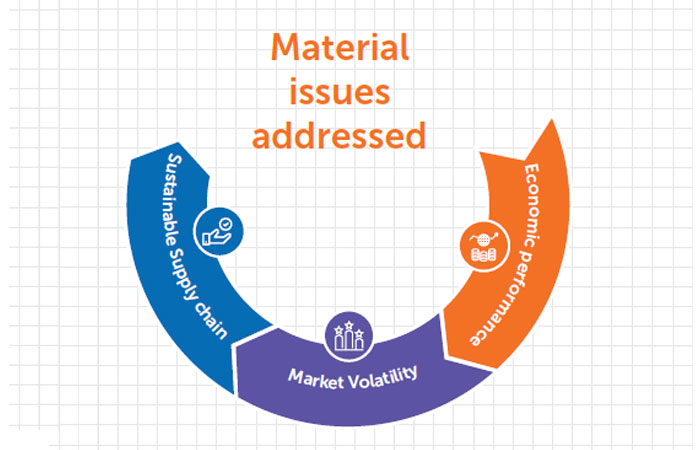
At IndianOil, we effectively deploy financial capital to generate sustained value addition for all stakeholders in addition to delivery of financial results.
(₹ in Crore)
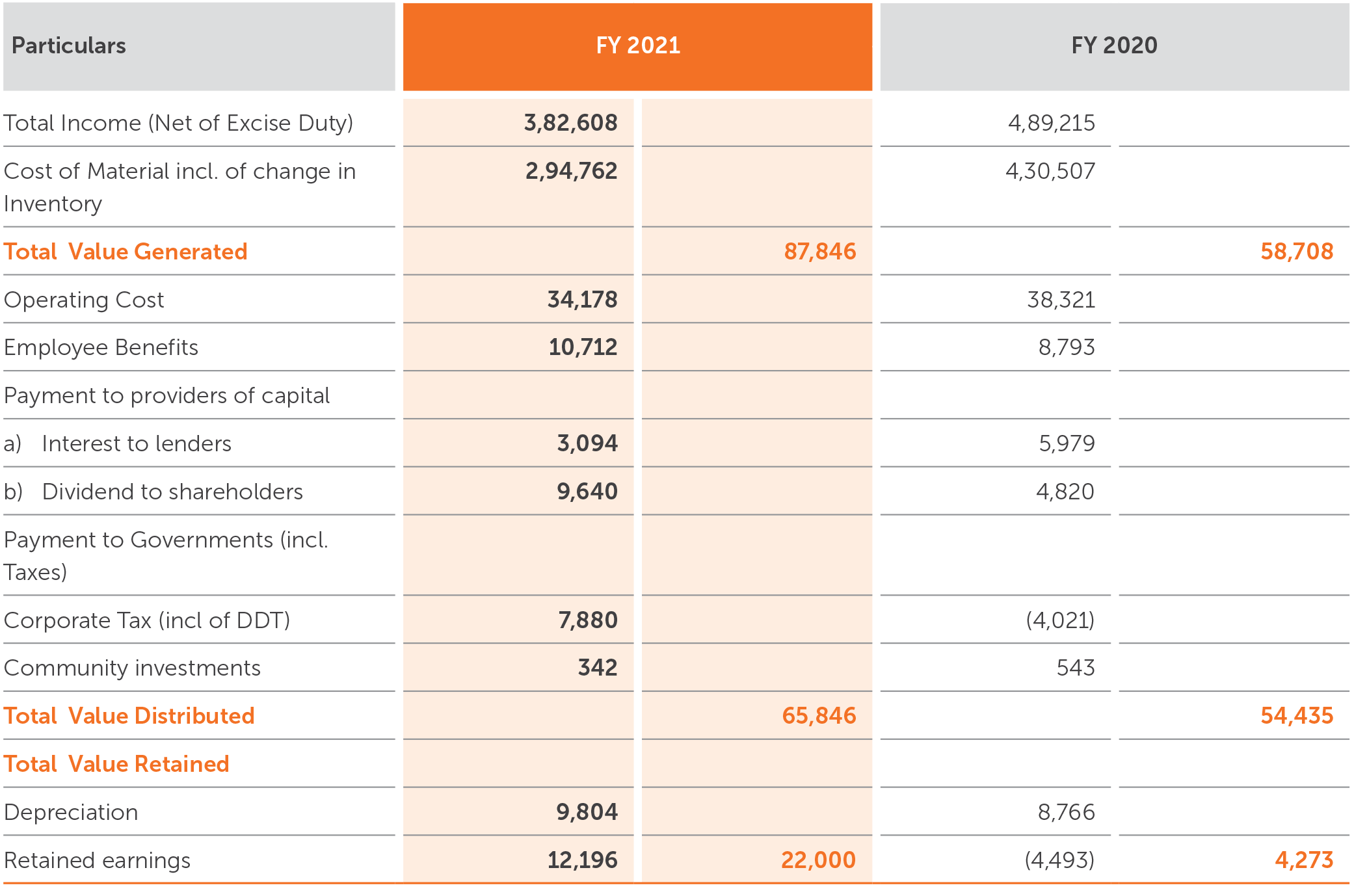
At IndianOil, we are stimulating efficient use of assets and funds for stable growth and inancial reliability. We strive to generate maximum profit through optimum use of working capital by reducing idle or inefficient fixed assets and directing investments towards areas with potential for growth.
Our prudent capital allocation strategy is aligned to building a robust balance sheet. We strive to realise our goals of sustainable growth by investing effectively across R&D, capital expenditures and shareholder returns.
The onset of the Covid-19 pandemic severely disrupted business in the first half of 2020-21. At IndianOil, our team adopted lean financial measures across operations to maintain liquidity with minimum stress on the balance sheet.
During the year, the Company raised long-term fund of ₹ 7,915.20 Crore by issuing unsecured, listed NCDs in the domestic market, and ₹ 2,227.54 Crore through term loans from Banks as well as ₹ 437 Crore through term loan from OIDB.
Cash flow from operations
(₹ in Crore)
We resumed our various capex projects after the relaxation of lockdown in Q2 2020-21. These projects remain critical for addressing the country’s future energy demands, generating employment, boosting the economy and making India self-reliant (towards an ‘Aatmanirbhar Bharat’). We also declared a total dividend of ₹ 11,017 Crore (including interim dividend of ₹ 9,640 Crore) for 2020-21. Our financial instruments are being accredited by various credit rating agencies, ensuring the financial reliability of our business. Most rating agencies have considered our financial instruments as ‘Stable’.
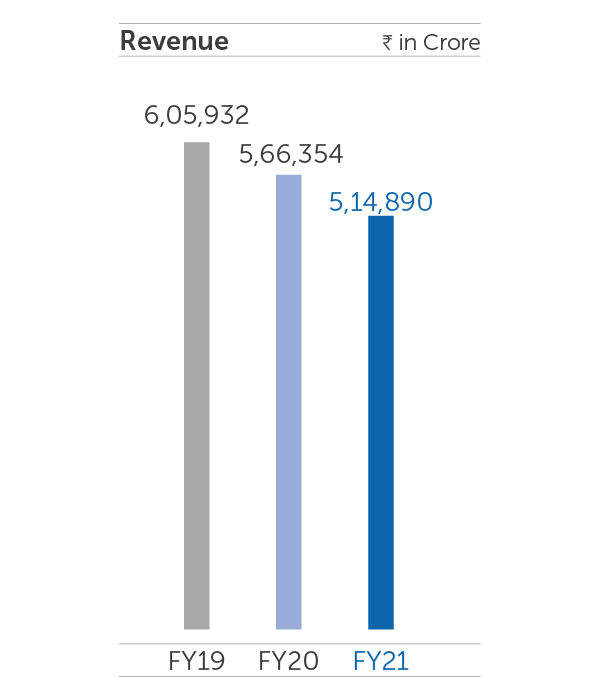
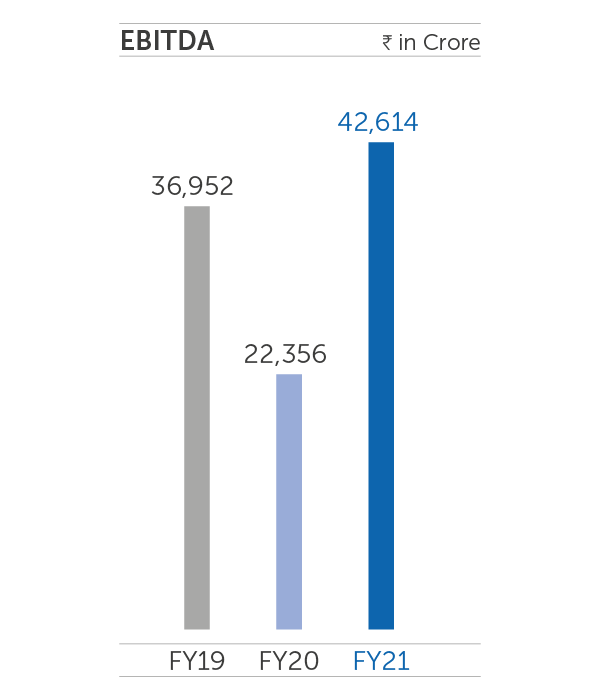
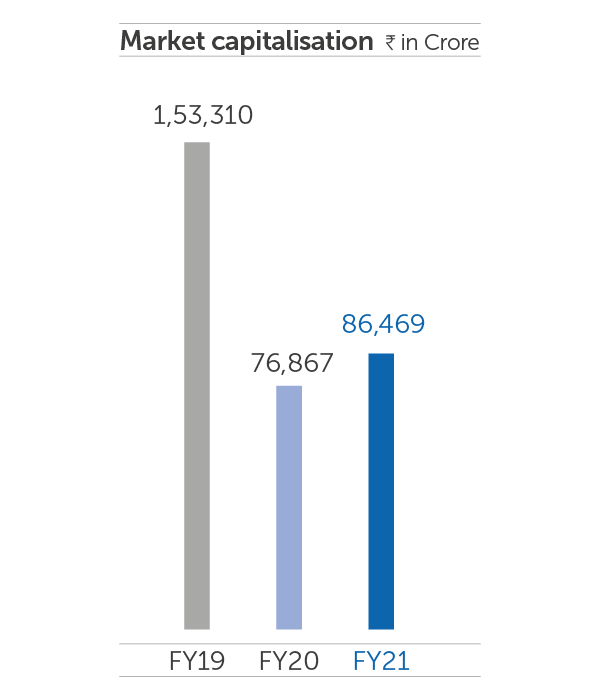
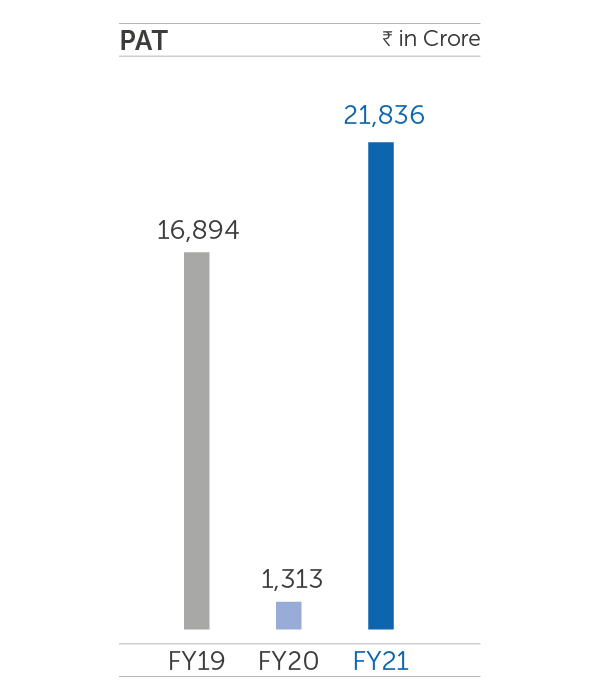
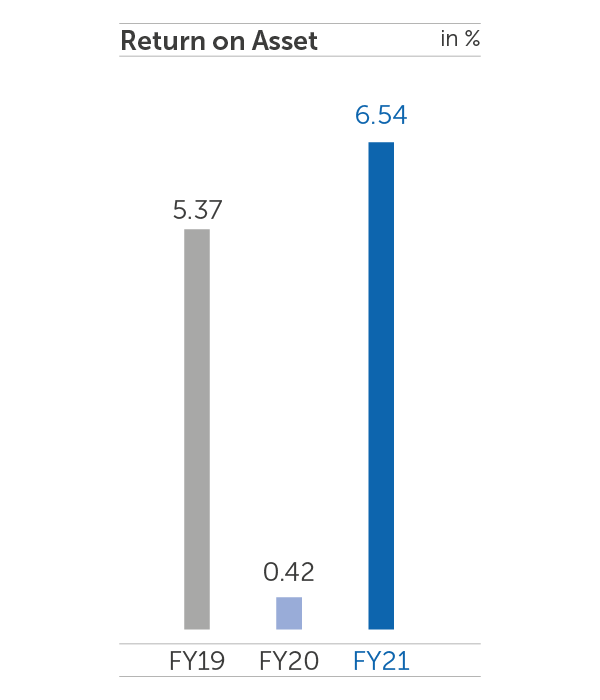
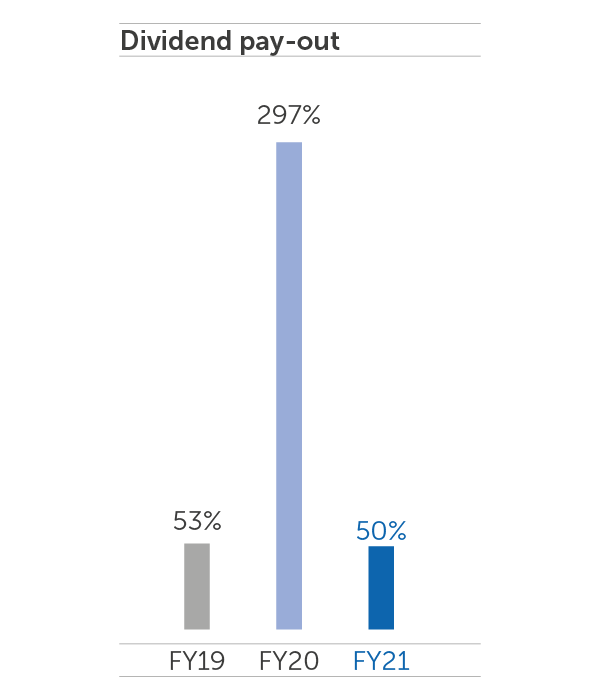
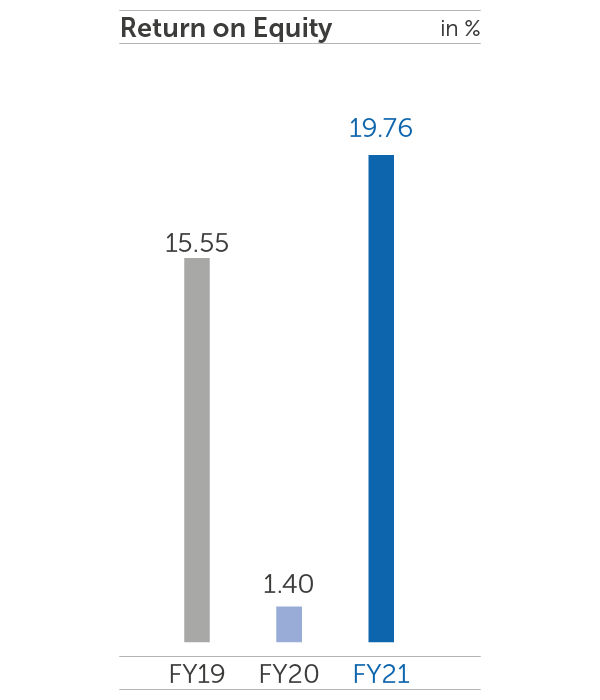
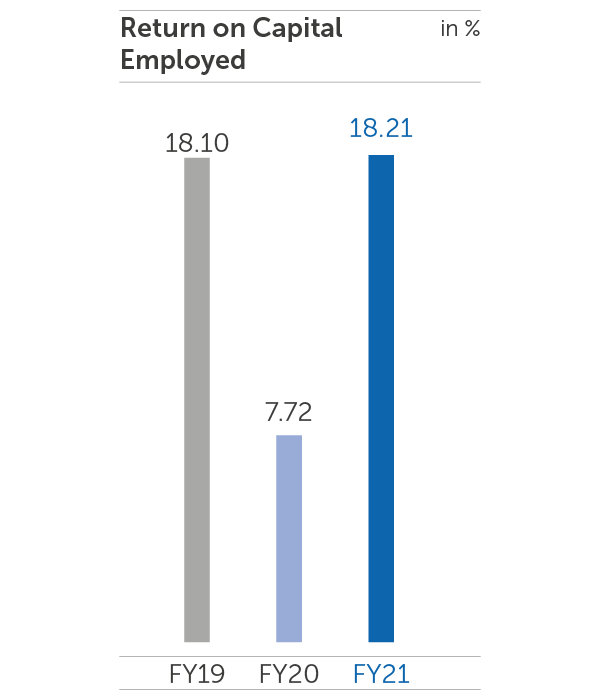
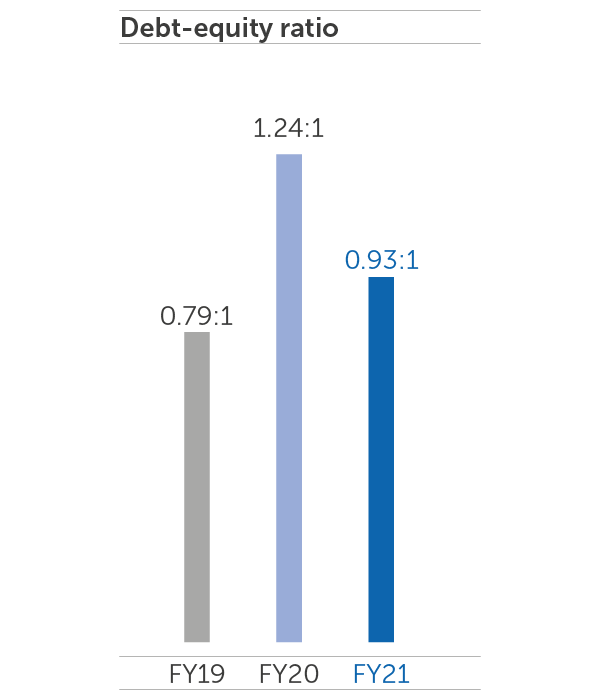
We have changed our hedging policy on foreign currency loans since October 2015. As per the revised policy, all short-term foreign currency loans are to be hedged on availment (except revolving lines, which are used for cash flow management). All long-term foreign currency loans are to be monitored and hedged at pre-decided levels. Risk management policies are designed to mitigate the impact of fluctuations in foreign exchange on the Company’s earnings from high volatility in the foreign exchange market.
Covid-19 continues to have a devastating effect on people’s lives as well as economic activities around the world. During the nationwide lockdown in 2020-21, demand for petroleum products declined due to reduced transportation on roads.
IndianOil continued to meet the energy demand of the nation as an essential service provider by modifying production plans at refineries and balancing imports. We also adapted to the ‘new normal’ and enabled remote working to ensure business continuity during a particularly tough period. Although the demand for petroleum products revived by the second half of the financial year, demand for aviation fuel is still lagging behind due to the slowdown in the travel and tourism industry.
With recovery in crude oil prices, we recorded inventory gains in 2020-21. However, both refining cracks and sales were lower than the previous year. The onset of the second wave of Covid-19 and speculations of a possible third wave are expected to further impact crude prices, refining cracks and sales. Nevertheless, we are optimistic about business growth in the long-term and remain poised to explore better opportunities.